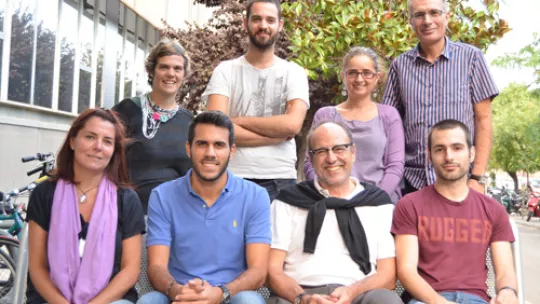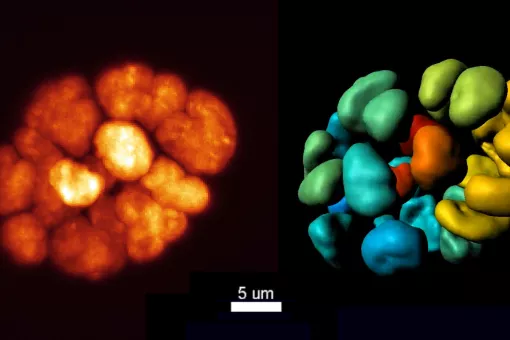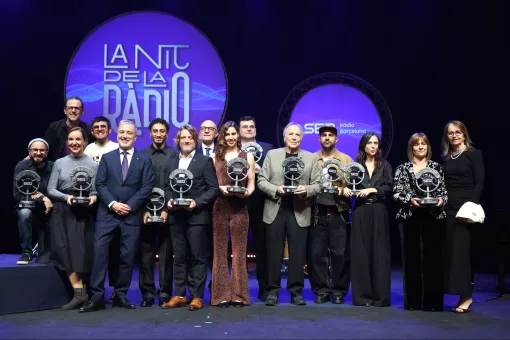Images
Scientists at the Institute for Research in Biomedicine (IRB) and the “Centro de Biología Molecular Severo Ochoa” (CBMSO) launched the project two months ago.
The project is the result of an initiative of Spanish people affected by this rare disease who are grouped in GENEFA in collaboration with the Spanish Federation of Ataxias and the BabelFAmily. The Friedreich’s Ataxia Research Alliance (FARA), one of the main patients’ associations in the United States now joins the endeavour.
The support provided by FARA will account for 50% of the project budget of 300,000 euros. Of note, FARA’s funds come from the support of patient families and communities raising funds at a grassroots level and from other International advocates such as FARA – Ireland.
The gene therapy-based research project to tackle Friedreich’s ataxia launched in November in labs at the Institute for Research in Biomedicine (IRB), in Barcelona, and the “Centro de Biología Molecular Severo Ochoa” (CBMSO), in Madrid, has received 100,000 US$ per year for two years from the Friedreich's Ataxia Research Alliance (FARA). FARA is one of the main patients’ organisations in the United States and since 1998 it has provided a rigorous and solid funding programme for research projects all over the world that aim to tackle Friedreich’s ataxia, a rare and serious hereditary neurodegenerative disease for which only palliative treatments are currently available.
The peculiarity is that the idea of the project came from those affected by the disease, patients and relatives, who, in their endeavours to find a cure got in touch with basic research groups in order to start a long-term project. The GENEFA Platform, in close collaboration with FEDAES and the BabelFAmily, started fund-raising efforts in May 2013, and in November signed an agreement with IRB and CMBSO, headed by Joan Guinovart, director of the IRB, and Margarita Salas, president of the “Fundación Severo Ochoa”.
“The monthly subscriptions of members of the GENEFA Platform form the basis of the funding; however, the organisation has also held a wide range of fund-raising events and activities and has been supported by donations from companies, associations, and relatives and friends of those affected by Friedreich’s ataxia. We are all working hard towards finding a cure and now the collaboration of FARA guarantees the funding required for this purpose,” explains Juan Carlos Baiges, on behalf of the members of the Platform.
The project involves the research groups headed by Javier Díaz-Nido at the CBMSO, an international expert in gene therapy and Friedreich’s ataxia, and Ernest Giralt at IRB, an international authority on the design of transporters, such as nanoparticles, that can carry drugs into the brain and thus overcome the blood-brain barrier. Patients with this ataxia inherit a mutated version of the frataxin gene, which causes neurodegeneration. The project seeks to rescue this defect in cells of the central nervous system.
Jennifer Farmer, executive director of FARA, explains "when you are working on a rare disease, critical resources, such as funding, are quite small so it is imperative that FARA and other global groups with an interest in supporting and advancing research in Friedreich’s ataxia work together". "We can't afford to duplicate effort or compete." She goes on to add that “we are proud to give our support to the solid scientific project led by doctors Díaz-Nido and Giralt to identify new therapies and at the same time to strike up an alliance with patients in Spain.”
________________________________________________________
To find out more about the gene therapy project read the news article:
Patients and scientists join forces to tackle Friedreich’s ataxia (14 November 2013)
About IRB Barcelona
The Institute for Research in Biomedicine (IRB Barcelona) pursues a society free of disease. To this end, it conducts multidisciplinary research of excellence to cure cancer and other diseases linked to ageing. It establishes technology transfer agreements with the pharmaceutical industry and major hospitals to bring research results closer to society, and organises a range of science outreach activities to engage the public in an open dialogue. IRB Barcelona is an international centre that hosts 400 researchers and more than 30 nationalities. Recognised as a Severo Ochoa Centre of Excellence since 2011, IRB Barcelona is a CERCA centre and member of the Barcelona Institute of Science and Technology (BIST).






